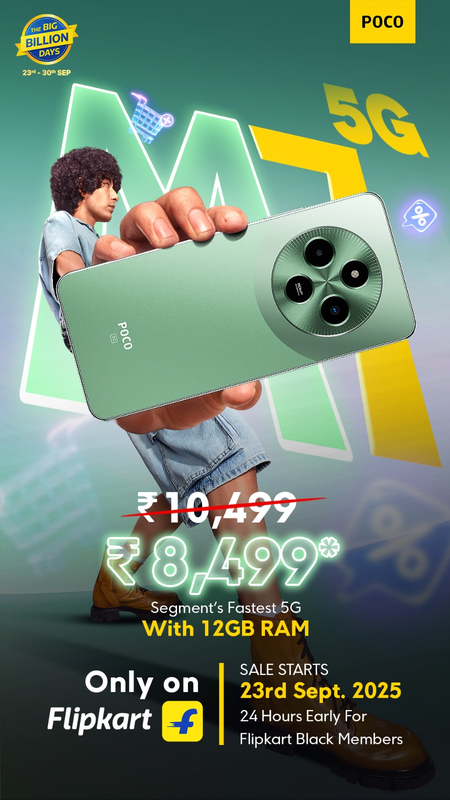By Cheryl Robinson,Contributor
Copyright forbes

Dagne Dover founders: Jessy Dover (L), Melissa Mash (C) and Deepa Gandh (R)
Tiffany Nicholson
When Dagne Dover launched in 2013, it was part of a wave of digitally native brands redefining how products reached customers. The e-commerce brand has since evolved into a legacy-minded lifestyle brand. Its online-first DNA approach built a community of customers that followed them through expansion into brick-and-mortar locations.
For cofounders Deepa Gandhi, Jessy Dover and Melissa Mash, the journey has been about more than bags; it’s been about creating systems and community that scale across platforms and generations.
They built their brand around a clear sense of purpose, which has enabled Dagne Dover to move beyond the confines of direct-to-consumer and establish a lasting presence in retail and wholesale.
The latest e-commerce statistics indicate that approximately one-third of online businesses fail to survive past their first year, and by year two, the failure rate increases to roughly 70%. The upside: companies that survive those early hurdles tend to remain stable for much longer.
For Dagne Dover, what lies behind the sleek bags is a blueprint for building a brand that is designed to last.
Principle One: Design Discipline Meets Everyday Utility
Dover, the brand’s creative director, has always been focused on function meeting form. She explains that the design ethos is rooted in solving daily problems.
“We wanted to design bags that work for how people actually live their lives, not for some fantasy lifestyle,” she explains. “That means every zipper, every pocket, every strap has to earn its place. If it doesn’t make the product more useful, it doesn’t stay.”
MORE FOR YOU
Dover adds that the transition to brick-and-mortar didn’t change this DNA. If anything, it reinforced it.
Jessy Dover, cofounder and creative director of Dagne Dover, has built the brand’s identity around functional design that reflects how people actually live.
Vanessa Chavez
“When you go into a store, the bag has to speak for itself. Online, you can tell a story with photography and copy. On the shelf, the product has to do the talking. That forced us to be even sharper in our design choices.”
This relentless focus on utility has become Dagne Dover’s differentiator in a crowded accessories market.
Function comes first. Focus on solving real problems before adding aesthetic details to a product or service.
Consistency across touchpoints ensures that the product or service communicates value, regardless of the setting.
Discipline over trend-chasing involves thoughtfully refining what works, rather than reacting to every market shift.
Principle Two: Culture As An Engine Of Growth
Gandhi, the COO, who leads operations and strategy, frequently emphasizes that brand health is inextricably linked to team health. She notes that the founders were intentional about building culture alongside product.
“From the start, we built Dagne Dover to be a workplace where people could thrive, not just a company that sells bags,” states the COO. “That meant being thoughtful about flexibility, empathy and the way we listen to employees. You can’t build a legacy brand if the people behind it are burning out.”
For Gandhi, culture also became a strategic advantage when scaling from an online-first model into wholesale.
Gandhi continues, “Our retail partners could feel the consistency of our culture. They could see that we were aligned, that we had a clear identity, and that’s rare. Culture isn’t just internal. It shows up in how you negotiate, how you support your partners and how you think long term.”
The company’s approach echoes broader trends in millennial-led businesses, where workplace design is as central as product design.
Prioritize well-being alongside performance. Sustainable growth depends on teams that feel supported and valued.
Let culture guide external relationships. The way an organization treats its people often mirrors how it treats its partners and customers.
Build identity into every layer because a consistent culture creates alignment that extends into the brand’s community.
Cofounders Deepa Gandhi and Melissa Mash helped steer Dagne Dover from its digital roots into a lasting retail presence, grounded in strategy and foresight.
Principle Three: Building Beyond the Hype Cycle
Mash, the CEO, who leads brand vision and external relationships, speaks candidly about resisting the lure of flash-in-the-pan growth that dominated the direct-to-consumer wave.
“There’s a temptation in this space to chase metrics that look good on paper, like hypergrowth, massive fundraising rounds, splashy marketing campaigns,” she comments. “But we asked ourselves, ‘Do those things actually build a brand that will be here in 20 years?’”
Mash says the founders deliberately paced their expansion, choosing to enter store partnerships when it aligned with their long-term goals, rather than succumbing to external pressure.
“Legacy brands aren’t built overnight,” Mash explains. “They’re built by doing the boring, disciplined work every day, by making sure your supply chain holds, your margins are healthy and your customer trusts you. That’s what makes you last, not a viral campaign.”
This focus on sustainability over spectacle has helped Dagne Dover avoid the pitfalls that sank many of its digitally native peers.
Enduring brands measure success by longevity, not momentary buzz.
Expand at the right pace. Growth should align with long-term objectives rather than succumbing to external pressure.
Focus on the fundamentals. Strong operations, healthy margins and reliable delivery are key markers of a successful strategy in creating a lasting identity.
From Digital Niche To Lasting Brand
The evolution of Dagne Dover reflects a shift across the retail industry. E-commerce used to be a category disruptor. Now, the brands that endure are those that balance digital strengths with a physical presence. Building a legacy brand isn’t about being everywhere at once. It’s about building a solid community in one space before expanding into another realm.
In a market littered with short-lived direct-to-consumer experiments, Dagne Dover’s trajectory offers a different playbook. By grounding their expansion in thoughtful design, they are charting a course toward longevity.
Together, the trio and their team have built not just a startup, but a brand determined to last well beyond the direct-to-consumer wave that gave rise to it.
MORE FROM FORBES
ForbesStarting A Business Seems Sexy. Do You Know Your Financial Blind Spots?By Cheryl RobinsonForbes4 Strategies That Turn Finance Into A Driver Of Growth And Value CreationBy Cheryl RobinsonForbesWould You Rather Be Liked Or Respected As A Leader? Here’s The DifferenceBy Cheryl Robinson
Editorial StandardsReprints & Permissions



